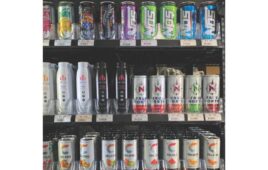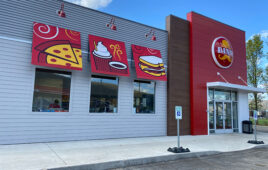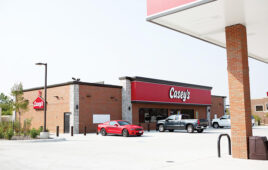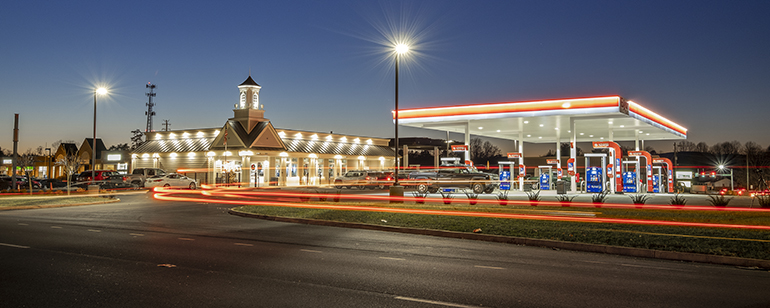 Tiger Fuel is roaring into 2020, invigorating its ‘The Market’ convenience concept with a full refresh from logo and store design to uniforms. Meanwhile, the Charlottesville, Va.-based company is pouncing on new technology, upgrading its websites, introducing mobile and online ordering, and launching a new rewards program, all while upping employee wages, reducing turnover and adapting to COVID-19.
Tiger Fuel is roaring into 2020, invigorating its ‘The Market’ convenience concept with a full refresh from logo and store design to uniforms. Meanwhile, the Charlottesville, Va.-based company is pouncing on new technology, upgrading its websites, introducing mobile and online ordering, and launching a new rewards program, all while upping employee wages, reducing turnover and adapting to COVID-19.
A Family Business
A second-generation family business, Tiger Fuel began in August 1982 when Founder David Sutton acquired an Exxon-branded petroleum distributor. In 1991, he purchased a gas station and opened the first The Market location, known as Bellair Market. From the beginning, Bellair Market was ahead of its time, featuring a signature sandwich menu and gourmet to-go foods.
Store Managers Pat Pitts and Hillary Horn drew on their catering backgrounds to “reimagine the taste of convenience to be fresh, local and inviting,” said Sarah Whitney, director of marketing for Tiger Fuel. “Pat founded our sandwich menu, which features local premium cheeses and Boar’s Head meats. All of our sandwiches are named after local towns or historical landmarks in this area, or people in history.”
Today, Tiger Fuel operates nine The Market stores ranging from 900 square feet to 2,800 square feet. Four contain delis similar to Bellair Market — now called ‘The Market at Bellair’ — and two of the deli stores also include local fried chicken programs. Tiger Fuel also operates 10 All American Car Washes, which it recently rebranded Tiger Wash — five of which are located on The Market properties.
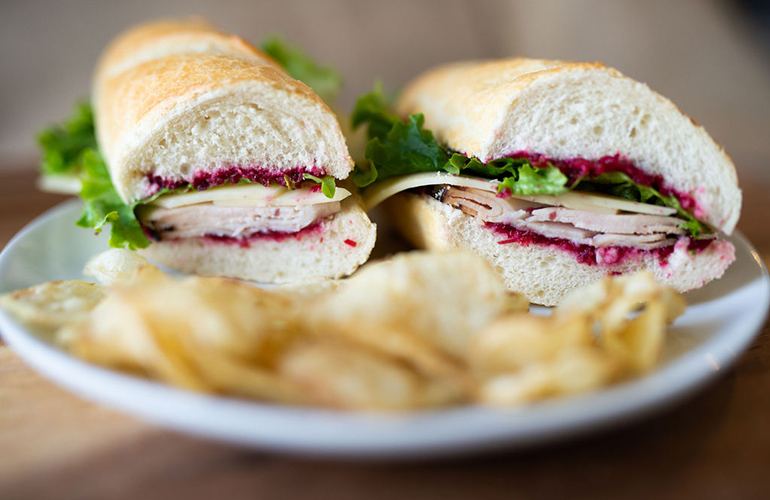
David Sutton’s son Gordon Sutton, now the company’s president, took the helm of Tiger Fuel in 2018. Taylor Sutton, Gordon Sutton’s brother, acts as chief operating officer.
Tiger Fuel’s most recent store, The Market at Ruckersville, opened in November 2018. It features the largest footprint to date at 2,800 square feet, and the first Tiger Wash to debut a 90-foot tunnel.
Brand Recharge
With its original The Market logo dating back to 1991, the brand enlivened its look in early 2020 with a modern logo that aspires to create a stronger connection between Tiger Fuel, The Market and Tiger Wash.
“The majority of our customers did not understand that Tiger Fuel owned and operated The Market,” Whitney said. “We felt we had a lot to gain by developing that association.”
Tiger Fuel is also revitalizing its The Market store design. The Market at Preston, which originally opened in 2018, is set to pilot the revamped design complete with a new in-store wall wrap and an updated menu board for sandwiches, plus fresh signage at the register, checkout, coffee area and car wash. A new crisp, cream backdrop with red lettering and illustrations that provide “a local, warm feel” are set to replace a dated photographic wall mount. COVID-19 has temporarily delayed the installation, but Tiger Fuel plans to push ahead as soon as possible. New coffee cups and fountain drink flavors are also on the docket.
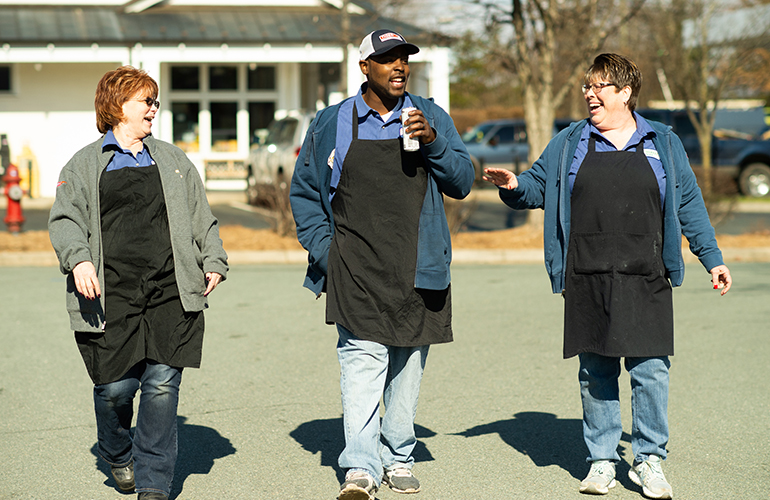
As part of the refresh, the chain partnered with Lands’ End to introduce new frontline employee uniforms that include red, white and black moisture-wicking polos, aprons with a custom-embroidered logo, and trucker hat and visor options. Managers will don buttoned-down oxford shirts.
Tiger Fuel is intentionally creating a visual distinction between frontline employees and managers through the uniform design. “We wanted our team members to feel good about the uniform that they put on every day. That’s why our market associates can select the color of their polo shirt, and our managers can choose from a variety of high-end shirts and blouses. It’s another way we can help inspire a long-term career and advancement at our stores,” Whitney said.
The Market focused on technology as a core component of its new concept. It partnered with Paytronix to launch a new Market Rewards app in February that will allow it to better use data to target messages to customers. In early March, it rolled out online and mobile ordering. Its The Market and Tiger Fuel websites received redesigns, and at press time the Tiger Wash website update was nearing completion.
Coronavirus Response
As COVID-19 disrupted business around the U.S. and customers began to social distance, the timing of the new technology proved serendipitous.
“To have online ordering available to us during the virus has been a gift, and something we’re very fortunate to have in place because a lot of customers obviously don’t want to go in the store, and we’ve been able to direct them online and offer in-store and curbside pickup,” Whitney said.
In response to COVID-19, Tiger Fuel gave all employees masks and gloves, installed plexiglass shields at the registers, and added floor decals to remind customers to social distance. The chain also hired a cleaning company to do daily deep cleanings at the stores.
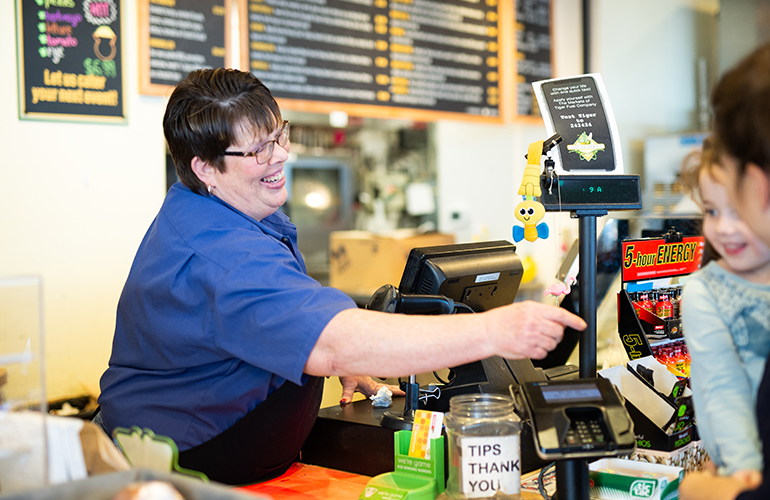
Tiger Fuel prides itself on its commitment to philanthropy and grassroots community efforts.
In the age of coronavirus, among other initiatives, the chain donated $2,000 to a fund for local restaurants, and launched Loaves for Love, a program where it sells French bread rolls for $1 to benefit the Albermarle City Meal Programs, which provides meals to children in need.
“We’re also offering free coffee, free fountain drinks and buy-one-get-one-free sandwiches for all first responders and healthcare workers,” Whitney said.
Pickle People
Sutton creates twice-weekly videos to update the team on the chain’s coronavirus response and to recognize team members, whom it calls ‘Pickle People.’ The moniker was inspired by restaurant owner turned motivational speaker, Bob Farrell.
“Basically, there was a guest asking for extra pickles and Bob said, ‘Well just give him the pickle. We don’t need to charge 25 cents.’ We’re encouraging our team to continue to give customers ‘the pickle’ and be smiling, fresh faces for a lot of people right now,” Whitney said.
In November, Tiger Fuel invested more than $300,000 in employee wages, giving 170 employees an average 11% raise as part of the chain’s goal to offer competitive wages and attract and retain the best employees in central Virginia. By March, the chain had reduced turnover by 50%.
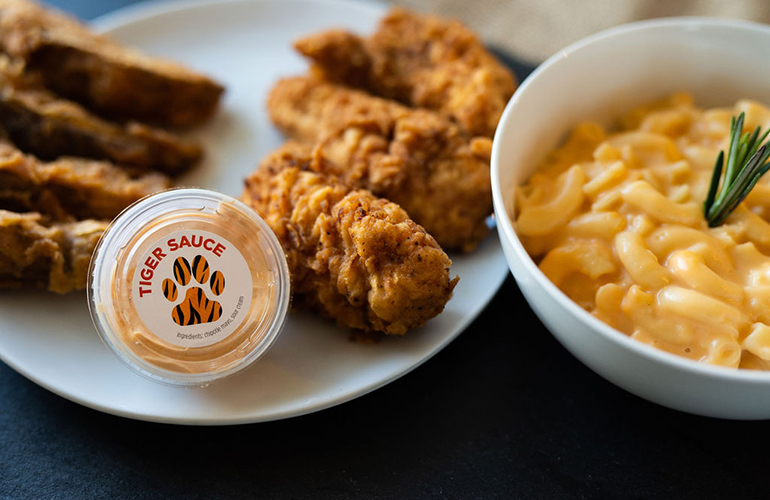
“I think it says a lot about our company and our people that our average tenure is between eight and 10 years. For a c-store chain, that’s really unheard of,” Whitney said. The secret is valuing employees.
“When employees feel like they’re valued, they offer really valuable service to others,” she said. “That’s one reason why we chose to increase wages.”
While growth plans remain on the horizon, Whitney noted, “right now, in the midst of the coronavirus, our main goal and focus is the safety of our customers, our employees and our community.”

